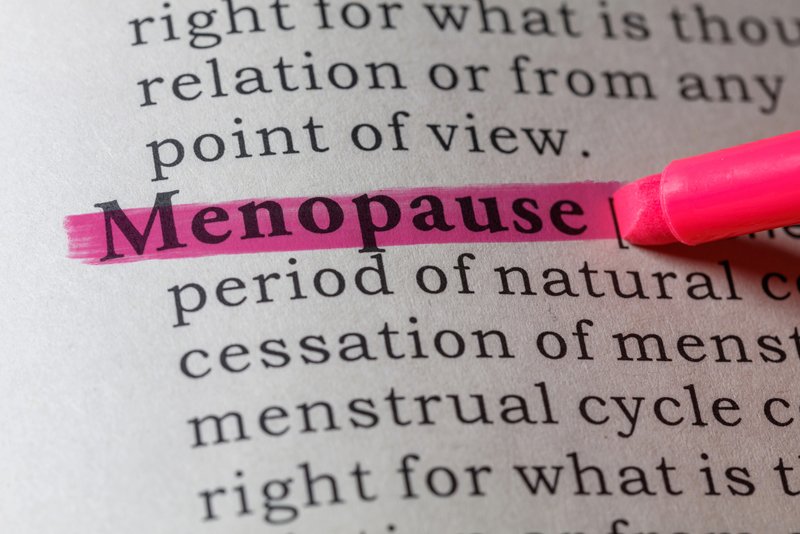News
Navigating Women's Behavioral Health with Dr. Paige Baker-Braxton

Understanding Prevalence, Susceptibilities, and Strategies for Well-being
Below are the notes from Dr. Paige Baker-Braxton's presentation on women's behavioral health as part of Vail Health's Flourish: A Springtime Celebration of Women's Wellness event. Dr. Baker-Braxton's discussion provides education on women's behavioral health trends, susceptibilities and strategies to help live a long, purpose-driven, and meaningful life.We live in an incredibly unique community - but one that is not free of its challenges or problems - and I would be remiss if I did not acknowledge those challenges tonight. In the past few weeks, this community has experienced incredible trauma and pain - a pain that we unfortunately know too much about. There have been lives lost to violence, suicide, and illness - and there are many more people in our community struggling silently. And because of my job, I often hear people in their most desperate times with the ugliness that can be this life. But I also have the incredible privilege of seeing people and this community at its most resilient.
We are a community defined by this resilience and strength. We are a community of generosity and connectedness. And it is that connectedness that we will leverage today as we work toward flourishing in and celebrating our womanhood. And not to spoil my key take aways - but - building relationships with other women is actually at the foundation of our wellness... So you can find comfort that now in this moment you are on an actionable step towards improving your health and wellness because you are here building connection with other like minded women!
Before we get into the incredible things about women - we need to first talk about our unique challenges. Women are more are up to 40% more likely to experience a mental health condition compared to men. For example:
- Women are twice as likely to experience depression and anxiety.
- When it comes to depression these rates are rising since 1990 when only 6% of women experienced depression to a 2020 study that revealed 25% of women reported depression.
- Women are also twice as likely to experience PTSD and more likely than men to feel hypervigilant, have trouble feeling emotions.
- Women make up 90% of disordered eating cases.
- And while men are more likely to successfully complete suicide, women are 1.5 times more likely to attempt suicide than men.
- Hormones: Throughout our lives from puberty, pregnancy, and perimenopause, menopause, and post menopause the fluctuations in our estrogen and progesterone can directly contribute to or exacerbate symptoms.
- When estrogen drops not only can our mood be impacted but we often experience a reduce ability to handle stress.
- As women age our hypothalamus becomes less responsive - which impacts sleep, hunger, and thirst messages - it also impacts pleasure, aggression, fear and sexual arousal
- Hot flashes, weight redistribution, loss of libido… the list goes on - all impact our mood.
- These hormonal changes significantly impact sleep - which is a huge risk factor for worsening mood (which we know anecdotally sleep impacts our mood - but the research indicates that people with poor sleep have a 2.52 times greater odds of experience mental health issues than their well rested peers).
- Violence: women are more likely to experience PTSD given women are more likely to experience interpersonal trauma - more than half of women report experiencing sexual violence and nearly 40% report experiencing domestic violence (with 1 in 4 women experiencing violent domestic violence).
- Societal Expectations: women often face unique expectations related to body image, caregiving, career aspirations, motherhood, etc that can contribute to stress and low self-esteem.
Psychologists have termed this changing “windows of tolerance”, meaning throughout our life our resilience and ability to cope changes - sometimes it grows and sometimes it shrinks. But there is this phenomenon that many women in their middle ages share - that these windows of tolerance significantly decrease - the patience they had before disappears, their ability to bounce back after a tough day at work or life challenge diminishes. Why? Likely perimenopause, which Dr. Boyer presents on more in depth - but from a behavioral health perspective…
In perimenopause, estrogen begins to decline and fluctuations in progesterone and androgens lead to the symptoms we all know so well - irregular menstrual cycles, hot flashes, sexual changes, weight distribution changes, mood changes and sleep disruptions - creating the perfect storm to shorten those windows! When these windows close even temporarily it can cause significant challenges to your sense of self, identity, and self-confidence.
But its not all bad news! There are things we as women do that make us resilient and strong. There are things inherent in womanhood that equip us to fight that window closing and live our fullest life.
- Community and social support are huge factors in addressing the stress and distress after 40. Women tend to be better than men at forming tight and meaningful friend groups. Women are more likely to maintain these connections throughout life, seek support and take advice from their friends.
- In fact, on average, women’s friendships are 16 years (which is 6 years longer than the average romantic relationship). After 55, the average length of female friendships is 23 years!
- Inherently, women tend to have higher emotional intelligence. So if we are able to separate from the immediate distress - we have a greater ability than men to manage our own emotions and respond to the emotions of others.
- Though when our windows are closing - we sometimes need the support of others, professionally. Seek care from your primary care, OBGYN, and behavioral health professionals.
- Enhance your coping skills: these include everything from focusing on.
- Sleep hygiene to improve sleep:
- Go to bed and wake up at the same time every day.
- Avoid your computer, phone, TV, and other screens in the hour before bedtime.
- Avoid heavy meals close to bedtime.
- Skip coffee, soda, or tea in the afternoon—caffeine can affect you up to 8 hours after drinking it.
- Keep your bedroom quiet, cool, and dark. Use a fan if that makes you more comfortable.
- Seek support from your PCP to chat about sleep and your health
- Drink water! As we talked about the hypothalamus is less sensitive - so you might not get the same cues you are hungry or thirsty as in your earlier years.
- Focus on a whole food diet and the need for aerobic exercise - both of which not only combat mental illness but are keys to longevity, as seen from Dr. Klearman's presentation.
- Sleep hygiene to improve sleep:
- Challenge the myth that you must care for everyone before yourself - by prioritizing your needs - ask for help, do things that bring you pleasure.
- Connect with the women in your life, build your sisterhood.
- Girl, drink water!
- Focus on improving your sleep.
In the words Psychologist Tara Brach, “This revolutionary act of treating ourselves tenderly can begin to undo the aversive messages of a lifetime”.
Prevalence Rates
Depression:- Women are twice as likely as men to experience depression during their lifetime (National Institute of Mental Health).
- Lifetime depression rates in women have increased in the last 50 years.
- 1990: 6% of women experienced depression.
- 2020 25% of women reported depression (World Health Organization).
- 1 in 9 adult women have experienced a depressive episode in the last year (National Institute of Health).
- Women are also more likely than men to be diagnosed with anxiety disorders, such as generalized anxiety disorder and panic disorder (Anxiety and Depression Association of America).
- Studies suggest that women are nearly twice as likely as men to develop anxiety disorders (Harvard Health Publishing).
- Women are twice as likely to experience PTSD; and are more likely than men to feel hypervigilant, be depressed, and have trouble feeling emotions while men are more likely to feel angry and have drug or alcohol problems (American Psychiatric Association).
- Women are at a higher risk of developing binge eating disorder compared to men (National Institute of Mental Health).
- Women are more likely to attempt suicide but less likely to die by suicide compared to men.
Susceptibilities and Risk Factors
Hormonal Influences:- Fluctuations in estrogen and progesterone levels throughout the menstrual cycle, pregnancy, and menopause can contribute to mood disturbances and exacerbate symptoms of depression and anxiety.
- Women often face unique societal expectations related to body image, caregiving roles, and career aspirations, which can contribute to stress, low self-esteem, and mental health challenges.
- Women are more likely to experience interpersonal violence, including domestic violence, sexual assault, and intimate partner violence, which can have profound and long-lasting effects on mental health.
- Stigma surrounding mental illness, along with systemic barriers to accessing mental health services, can prevent women from seeking help and receiving timely treatment for mental health concerns.
Why Women are Resilient
Social Support:- Women tend to have stronger social support networks than men, which can help them cope with difficult situations and provide a sense of connection and belonging. Women are often more likely to seek out and maintain close relationships with friends, family, and other support systems, which can help them through tough times.
- Women tend to have higher emotional intelligence than men, which means they are better able to identify and manage their own emotions and respond to the emotions of others. This can help women navigate challenging situations and communicate effectively with others, which can be key to resilience.
- Women may be more likely to use adaptive coping strategies, such as seeking social support, problem-solving, and positive reframing, when faced with stressors. These strategies can help women manage stress and cope with difficult situations, leading to greater resilience.
- Women may have more experience with adversity and difficult situations due to societal factors such as gender inequality and discrimination. This experience can help build resilience over time, as women learn to navigate and overcome challenges.
- There is some evidence to suggest that women's hormones and neurochemistry may contribute to their resilience. For example, the hormone oxytocin, which is released during social bonding and stress, has been shown to have stress-reducing effects in women.
What Can Women Do?
- Exercise: Aerobic exercise increases endorphins which can help alleviate stress and promote calmness, Reduces inflammation → exercise can increase serotonin and
- Sleep: While fluctuating hormones can impact sleep, sleep can in some ways be part of the antidote to many mood challenges and reduce stress
- Eat a healthy, balanced diet
- Manage stress: Learning stress management techniques, such as mindfulness meditation or deep breathing, can help reduce stress levels and promote mental wellness.
- Seek social support or find a job, passion or hobby you love: Research suggests that strong relationships and an increased or renewed sense of purpose can somewhat mitigate the impact of behavioral health concerns
- Prioritize reproductive and sexual health: Seek regular gynecological and reproductive health care can help manage conditions that may contribute to mental health issues.
- Challenge stigma: Recognize that mental health issues are common and can affect anyone. Challenging stigma and promoting open discussions about mental health can help reduce shame and promote help-seeking behaviors - so exactly what we are doing today
- Seek help: Connect with friends, family, and your care team to get support, Reaching out to the BH scheduling line, talking to your primary care physician, Your Hope Center, Bright Future Foundation
Dr. Paige Baker-Braxton is the Director of Outpatient Behavioral Health at Vail Health Behavioral Health. She is a clinical psychologist by training, and women's health is a professional and personal passion. As a clinical psychologist, she yearns for a world in which women can feel confident, powerful, and safe to be who they are. A world in which they seek behavioral health care to help live a long, purpose-driven, and meaningful life rather than responding to crisis or mental illness.
More News
-
New!
More

Longevity for Women with Dr. Eliza Klearman
Notes from Dr. Eliza Klearman's presentation on longevity for women. Dr. Klearman's discussion provides education on the exciting topic of women living as healthy as possible for as long as possible.
-
New!
More

The Details and Challenges of Menopause with Dr. Laura Boyer
Notes from Dr. Laura Boyer's presentation on menopause. Dr. Boyer's discussion provides education on what menopause and perimenopause is, why you should talk with your doctor about your symptoms, and what treatment options are available.
-
New!
More

Recipe: Dark Chocolate Sea Salt Dates
Just take some dates, some dark chocolate, some peanut butter, and some flake sea salt, and you will have like the best dessert ever.
